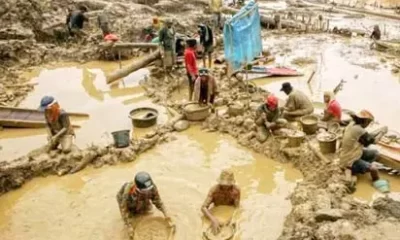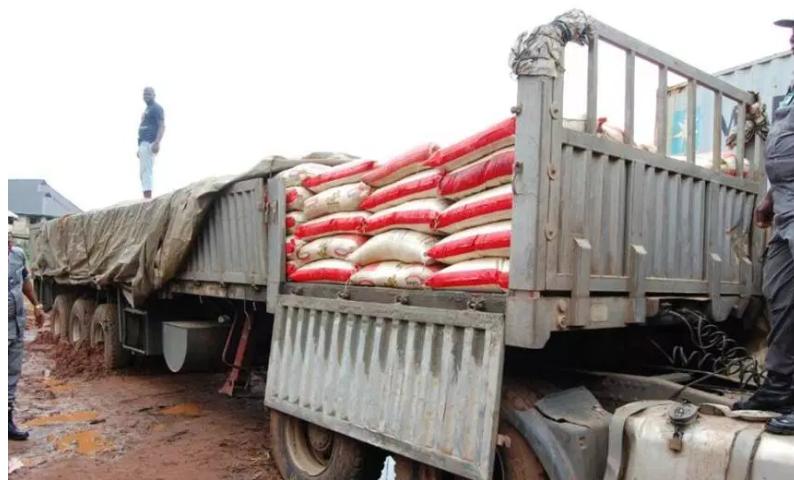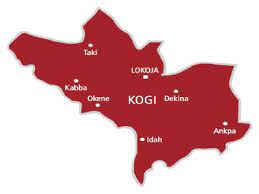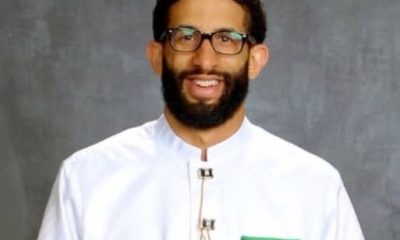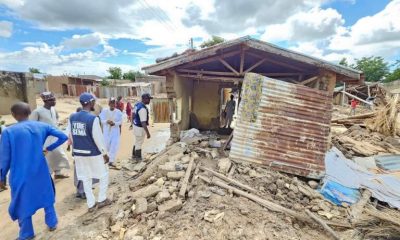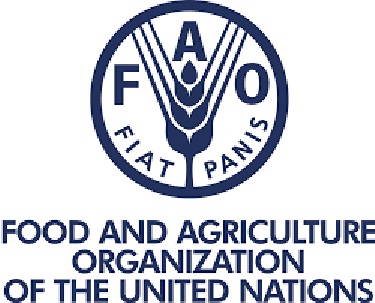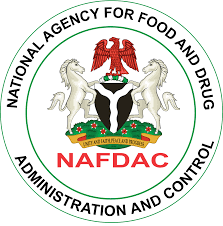OPINION
Between Gov. Bello and Engr. Wada
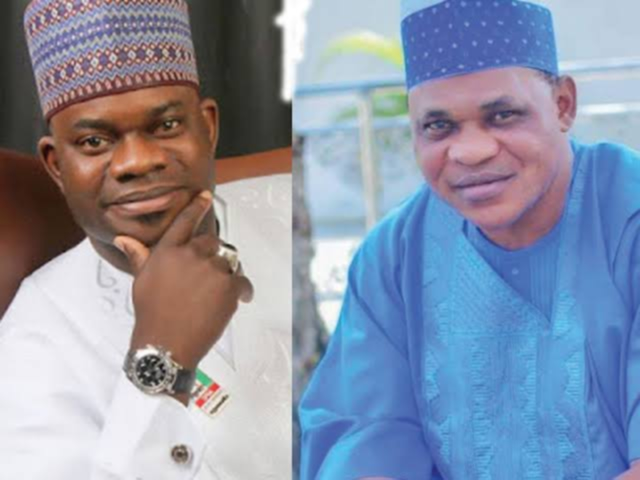
By Valentine Opaluwa
Between the two major contenders for the November 16th Governorship election in Kogi State there is every need for objective analysis and assessment of the candidate of All Progressives Congress (APC), the incumbent Gov’, Alhaji Yahaya Adoza Bello.
and that of Peoples Democratic Party (PDP), Engr. Musa Wada from the positions of strength and weaknesses because both candidates are clearly the leading hopeful in the run up to the election.Looking at Govr, Yahaya Bello the APC candidate from position of strength is the incumbency factor which confers on him an advantage.
More so, that the ruling party at the federal level is APC.GYB as a sitting governor has the privilege of the support of all or most of the political appointees like commissioners. special advisers, board members at Federal and state levels, the local government chairmen in the state and of course, the legislative arms both at the National and the State Assemblies, where 25 members are of the ruling party.
There is also a strong notion among some APC members that “federal might” would be deployed to aid APC and GYB to win the election and secure a second term in office by all means. Therefore, GYB can be considered as a strong candidate given the apparatus at his disposal and his capacity to use his foot soldiers who are already brewing for political thuggery and brigandage.
In fact, spectacularly political office holders are desperate and like they did in the last general election, they may also carry A.K. 47 and other arms to influence the outcome of the election in favour of GYB, the “White Lion”. Also GYB as sitting governor has a large purse therefore has plenty of resources to throw around in other to curry support of some people and do vote buying if possible.
On the other hand, Engr. Musa Wada, the candidate of the Peoples Democratic Party (PDP), position of strength lies in the fact that the party has been dominant in the state and produced the governors since 2003 until 2015 when it lost the baton of leadership in a very controversial way to Governor Yahaya Bello of APC. Therefore, the party has strong political structure across the 21 local governments area in the state.
Another position of strength for Engr. Musa Wada is that he does not have any political baggage working against him ;he has no corruption case hanging on his neck as a retired civil servant.
Also before he ventured into politics, he was well known by many people in the state especially in Kogi East where he hails from and given the circumstances that surrounded his emergence in the PDP primary election he does not have a known political godfather that can impede on governance of the state if he is elected. Another strong factor in favour of his candidacy is the fact that Engr. Wada is well educated and has vast knowledge of administration coupled with the fact that he is known to have unquenchable desire to render service to the people for some times now there, his emergence on the political soup opera is not accidental.
He is from Kogi East where the bulk of votes for Kogi State governorship reside and lastly which by no means the least, is that GYB’s administration is acknowledged to have received huge fund from the federal government in the name of Bailout fund, Paris refund, Infrastructure fund, Ecological Fund and Internal Generated Revenues yet the civil servants, teachers and pensioners in the state are owe salaries for months, some for more than 30 months and in the same vein, the government has not completed any infrastructural projects a side from the Revenue House in Lokoja.
In fact, since he came into office about four years ago, President Muhammadu Buhari or Vice President Prof. Yemi Osinbajo have never commission any project executed by the All Progressives Congress (APC) led administration of Govr. Yahaya Bello. This is a source of strength for Engr. Musa Wada of the Peoples Democratic Party (PDP).
Now what are the weaknesses of Governor Yahaya Bello as the incumbent governor of Kogi State? Even though, Bello inherited an outstanding salary of two months owe the state civil servants by his predecessor, Capt Idris Wada.
Graciously, President Muhammadu Buhari upon assumption of office met this debt burden across the states. Many governors were owing workers salaries as delicate as the issue of workers salary is to the economy and well-being of the citizens. Let call it Buharinomic, bailout funds that were secure for the states made it possible to overcome the challenges of payment of workers salary every month.
Alas Kogi State government under Govr. Yahaya Bello was receiving the bailout fund but was not paying the workers adequately and promptly and in some cases no payment at all. In the name of screening exercise, he oppressed the civil servants, teachers, pensioners and of course the good people of Kogi State. Conducting screening exercise to weed out ghost workers is a noble idea but it was done in a shady manner with a pre – conceived mind.
Kogi State became notorious place of attention, as the workers cried out, some of them committed suicide; a Director Mr. Soje hung himself and the reason for the act was that he could not fend for himself and family because he was not receiving salary. There were those who died in the course of traveling to Lokoja for the screening exercise that was simply a conduct pipe and tool of oppression and denigration of Kogi State workers and people.
Secondly, despite the huge resources that Govr. Bello has received from the federal government he has not executed infrastructural projects like roads, housing, or venture into solid minerals that is scattered across the state, education has not fare better. GYB was ensued in bitter acrimony with lecturers at the state owned University in Anyigba. He did the unthinkable by proscribing ASUU, a power which was not his but needed to display arrogance. Many professors and senior lecturers left the citadel of learning which was once reckoned as one of the best state owned in the country.
Thirdly, the populace groins in pain and penury because most of them depended on salary paid their father and mother to go to school, to pay fees, to feed the family and provide health care services in the case of ill health. Some extended family members depend on their brother, sisters, sons and daughters to make end meet and take care of bills. The absence or inadequate salary makes it difficult for them to get the support and assistance they normally recieve from their family members, relations and friends.
Fourthly, Gov. Yahaya Bello belongs to the Ebira Okene ethnic group and since he came to power as a result of the sudden death of Prince Abubakar Audu of blessed memory’ he has been trying to erase the foot print of his predecessors in different ways, the destruction of architectural master pieces in different roundabout in the state were removed. He once ordered the arrest of Alhaji Mohammed Audu, the first son of late politician on thump up charges.
GYB did not hide his deep hatred and animosity towards Igala people. This can be easily be seen from his appointments. As a matter of fact, key commissioners were only reserve for the Ebira and Okun people. Can you imagine this anomie in a state where the people of Kogi East, the Igala and the Bassa are clearly in majority, none was found worthy to serve as Commissioner for Finance, Commissioner for Works, Commissioner for Health, Commissioner for Local Government and Chieftaincy Affairs, Commissioner for Agriculture, the Speaker and the SSG are from Kogi West and impactful positions like SDG, Local Government Service Commission has not been occupied by an Igala man under GYB’s administration. Even though, for reason of survival some Igala youth are supporting his re – election especially the appointees and those he procured victory for in the State House of Assembly and those at the National Assembly. One good turn they say deserves another since personal interest is a strong variable in the whole gamut of politics.
However, they are very insignificant to sway majority of the votes from Kogi East for GYB who has treated the people of Kogi East so unfairly despite being the people that paved the way for him to become governor. Certainly it was not the Ebiras and Okun that gave him majority of the votes in the All Progressives Congress (APC) primary election in 2015 which he took second, and it was on that premise that he was nominated to replace Prince Abubakar Audu who was already cruising to victory in that election.
GYB has displayed crass ignorance of governance by choosing the path of oppression, dictatorship and pretentious hate for a section of the state. He is attempting to divide and rule the people of Kogi East, so as to incapacitate them politically but from all indication it is a mirage, because his supporters cannot give him up to 15% of the votes that will be cast in Kogi East in a free, fair and credible contest.
Fifthly, GYB does not have a grip on Kogi West Senatorial District where Senator Dino Melaye represents before court nullified his election on technical ground. At the moment two House of Representative seats that were deemed lost by the People Democratic Party (PDP) has been overturned by the Court of Appeal that of Honourable Shaba of Lokoja/Koton-Karfe Federal Constituency and HonourableTijani Yusuf of Kabba/Ijumu Federal Constituency.
Moreover, the appointees of GYB from Kogi West from the Secretary to the State Government, Speaker of the State Assembly, Commissioners and Special Advisers are not well known politicians who have the people on their side aside Senator Smart Adeyemi, most of the experienced politicians that decide the outcome of election in Kogi West are in the Peoples Democratic Party (PDP), namely Chief Shola Akomode, Gen. Jemibewon, Brig. Tunde Ogbeha among others.
While the weaknesses of Engr. Musa Wada are that he is a very independent minded person and would not have become the candidate of Peoples Democratic Party, if he does possess this attribute. He contested the PDP primary against all odds. He was persuaded by elders and younger men to step down for his elder brother, the former Governor of Kogi State, Capt. Idris Ichala Wada but he never budge, he was seeing beyond the request for him to step down.
Abubakar Ibrahim Idris, the son of former Governor of Kogi State, Alhaji. Ibrahim Idris was also contesting and had the support of his father-in-law, His Excellency, Ibrahim Idris, again he refused to succumb to pressure to step down. Engr. Musa Wada was not considered as a front runner in the primary election, but he was far ahead before the disruption during the last stages of the primary election.
In politics especially on our climes, an independent person is often seen as one who would not like to compromise thus supporting an independent minded person is not common. However, independent minded personality which appears to be a weakness in Engr. Musa Wada is a source of strength because an independent minded person is better for the people of the state than a yes man.
Again the fact that he is a younger brother to Captain Idris Wada the former governor some people are likely to see it as perpetuation of one family in power but that story is not flying among many people. Given the way he emerged and the failure of leadership of the magnitude we are having in Kogi State getting somebody like Engr. Musa Wada is good omen, that the state can be in a safe hand who would be driven by people centred leadership to enhance genuine development. He has the capacity and characteristics to advance the cause of the state positively and he is seen as such a leader by many well meaning Kogite of different shades of opinion and persuasion as things stand.
He does not have the resources to withstand GYB in terms of money for the election. However, luckily for Engr. Musa Wada his campaign is more like a movement and volunteers are many because of the strong desire for change of government for the better. Even though money for logistics and so on and so forth is necessary, it has become people project and that means individual donations is now driving the campaign and you know PDP is behind Engr. Musa Wada in totality.
The power of the people to demostrate their will to get freedom from oppressive leaders, be it monarchy and dictatorship is legendry in human history and about to be repeated. This time, it is about revolting against a young leader who came to power through providence but instead disgrace the very people who are the very essence of political leadership and democracy.
Engr Musa Wada seeming weakness has been eroded by the prevailing situation in Kogi State. Therefore, in comparision, while the strength of GYB is rooted in using anti-democratic forces to change the will of the people in the forthcoming election, Engr. Musa Wada is widely accepted not only in Kogi East but in Kogi West and of course Kogi Central. Therefore, in a free and fair contest, GYB is not popular enough to get 25% of the vote cast across the three Senatorial Districts in the state. The reason is simple, most civil servants, teachers, and pensioners would not vote for him and many others who are their beneficiaries and the generality of the people of the state because of the poverty and lack of democratic essentials which characterize his administration since he took the reign of power in 2016.
#Mr Opaluwa, a social commentator writes from Abuja
OPINION
Obaseki’s Failure and Urgent Need for Good Governance in Edo State
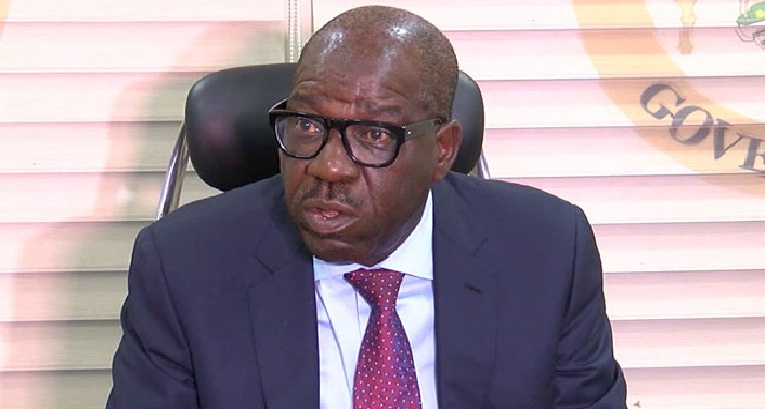
By Augustine Osayande
As the September 21 gubernatorial election approaches, I feel compelled to address the urgent issue of governance in Edo State. My concerns have been intensified by recent news: “Benin Group Issues Ultimatum to Obaseki, Demands Apology to Oba of Benin” and “200 Members of Governor Obaseki’s Family Defect to APC, Endorse Okpebholo for Governor.
” These reports highlight the growing discontent with Governor Godwin Obaseki’s administration.While poor governance is not unique to Edo State, Governor Godwin Obaseki’s administration has been particularly disappointing. His tenure has been characterized by unfulfilled promises and significant lapses in leadership, positioning him as a notable example of ineffective governance.
Compared to his peers, his administration’s failures are especially stark, making him one of the most prominent figures among underperforming governors.It is not surprising that the most recent damning verdict showing the woeful performance of Governor Godwin Obaseki for the past eight years is coming from his immediate family. According to the news report, the Agho Obaseki’s family in Edo State announced their decision to abandon the Peoples Democratic Party (PDP) and throw their support behind the All-Progressives Congress (APC) candidate, Senator Monday Okpebholo, for the upcoming gubernatorial election.
Osaro Obaseki, a prominent figure within the Obaseki clan, revealed the reasons behind their dramatic decampment. “We have stood by our brother, Governor Godwin Obaseki, since 2016. However, his administration has failed to deliver on the promises made to the people of Edo, and we can no longer support him, especially when he intends to bring and foist his replica on us,” Osaro stated, expressing the family’s disillusionment with the current state of affairs in the state.
The Obaseki family, which numbers over 200 members, voiced their dissatisfaction with the perceived neglect of crucial infrastructure and the lack of respect shown to traditional institutions, including the Oba of Benin. “We believe that Senator Monday Okpebholo has the vision and commitment to turn things around for the better. His track record and dedication to the people of Edo have convinced us that he is the right leader to guide our state forward,” Osaro Obaseki added.
Again, just before his family verdict, concerned People of Benin Nation (CPBN) issued a seven-day ultimatum to Obaseki, demanding a public apology to the Oba of Benin, Omo N’Oba N’Edo Uku Akpolokpolo, Oba Ewuare II, for what the group described as “sacrilegious disrespect” to the Benin throne.
In a press statement issued on Tuesday by Prof. Amen Uhunmwangho, and co-signed by prominent figures, including Dr. Jacob Abusomwan, Barr. Osarenkhoe, Leftist Agho Omobude, Mr. Iyamu Osaro Culture, Comrade Eseosa Omoregbee, Chief Omuemu Etinosa, Chief Friday Omoragbon, and Rev. Osamuyimen Isibor, the group demanded that the apology be published in at least three national newspapers.
The CPBN, representing a wide, cross-section of Edo State residents, also outlined several other demands, including an immediate halt to the construction of a museum intended for repatriated Benin artefacts, which they asserted was being undertaken without the Oba’s consent.
They also called for the withdrawal of lawsuits allegedly filed by certain Enigie against the Oba, the reallocation of lands whose Certificates of Occupancy were revoked by the governor, and the return of communal land they claimed were illegally acquired by the state government.
The group is advocating the payment of salaries and allowances to 14 Edo State House of Assembly members who have been prevented from taking their seats for the past four years, in what they described as unconstitutional actions by the state government. The CPBN’s demands reflect a growing discontent with the governor’s actions, which the group believed had undermined the Benin Kingdom and its people.
In evaluating the numerous controversies surrounding Governor Godwin Obaseki, it is essential to start with his actions that contradict the very principles that facilitated his rise to the governorship of Edo State. Democracy, widely regarded as the most effective form of governance, derives its legitimacy from the people, with the legislature serving as its essential safeguard. The constitutionally enshrined principles of checks and balances require the three branches of government to function independently and harmoniously for the benefit of the populace.
Governor Obaseki, in a troubling display of disregard for democratic norms, obstructed the inauguration of 14 duly elected members of the Edo State House of Assembly in 2019. This act, which remains a documented breach of democratic process, significantly harmed the people of Benin, as 10 of the excluded members represented the Edo South Senatorial District, including the elected representative of the governor’s own Oredo East Constituency, Hon. Chris Okaeben. Consequently, the Benins were reduced to a minority in the House, with only four members. This undemocratic exclusion deprived millions of Edo citizens of representation for four years, during which governance in the state was marked by an unchecked and unbalanced consolidation of power by the governor.
This pattern of governance has continued, with two members of the Edo State House of Assembly—Hon. Emankhu Addeh and Hon. Ojeme Donald Okogbe—recently suspended from the House without due process, further depriving their constituencies of effective representation. Such acts of oppression, exclusion, and intimidation have marred Edo’s recent history.
Furthermore, Governor Obaseki has repeatedly undermined the progress of prominent Benin citizens by allegedly sponsoring protests against their appointments to significant positions, such as the nomination of His Excellency, Rt. Hon. Pius Odubu, and Chief Victor Ekhator for leadership roles within the Niger Delta Development Commission (NDDC) in 2019. This, along with other actions, reflects a pattern of hindering opportunities that could have brought substantial development to Edo State.
The abandonment and destruction of critical state infrastructure, such as the Benin storm water project and the Ekehuan road project, further highlight the administration’s failure to prioritize the welfare of Edo citizens. Governor Obaseki has also been accused of demolishing long-standing public institutions like the specialist hospital on Sapele Road and the Institute of Continuing Education, replacing them with private ventures.
In the lead-up to the 2020 gubernatorial election, the governor’s alleged indifference to assassination attempts on political opponents and his persistent conflicts with the Benin traditional institution, particularly his attempts to interfere with the repatriation of Benin artefacts, have further estranged him from the people he is supposed to serve.
The governor’s actions have also included the demolition of property in Oke-Oroma Community, despite a subsisting court order, and the allocation of vast forest reserves to private entities, often at the expense of local communities and without transparent benefits to the state.
Governor Obaseki’s administration has been marked by what many perceive as a series of high-handed actions against individuals and communities, including the revocation of land titles and the demolition of property belonging to prominent citizens, often on grounds seen as politically motivated.
In conclusion, the people of Edo State are urged to critically assess the character of those who seek to lead them, especially as the next gubernatorial election approaches. It is vital to resist choices that could lead to further hardship and regression for the state. The resilience of the Edo people and their commitment to democratic principles should guide their decisions in this crucial period.
Augustine Osayande, PhD contributed this piece from Abuja via austinelande@yahoo.com
OPINION
Joining Hands to Build a China-Nigeria Community with a Shared Future

By Yu Dunhai
On 10 August, I departed from Beijing and landed in Abuja, from a city near the western side of the Pacific, to a capital adjacent to the eastern side of the Atlantic, and started my journey as the 15th Chinese Ambassador to Nigeria, with a lofty mission and great excitement in my heart.
Upon arrival at the Nnamdi Azikiwe International Airport, I deeply felt the hospitality of the Nigerian people and their friendship with China, which boosted my confidence in my tenure in the coming years.There is much common ground between China and Nigeria, and between our two peoples. China is the second largest economy and one of the most populous countries in the world, while Nigeria is a major economy and the most populous country in Africa.
Both of our countries are blessed with vast lands, ancient histories, rich natural resources, multiple ethnic nationalities and splendid cultures. Both the Chinese and Nigerian people cherish peace and yearn for development. They are both hospitable people, and treat each other as brothers.Meanwhile, the 1st of October is China’s National Day and Nigeria’s Independence Day, respectively. Although separated by oceans, the two countries and two peoples are closely linked by these similarities. Therefore, since the establishment of diplomatic ties on 10 February, 1971, our relations have stood the test of changes in the international landscape and gone from strength to strength. Furthermore, over the years China-Nigeria relations have stood at the forefront of China-Africa relations.
In 2018, our two countries signed a Memorandum of Understanding for cooperation on the Belt and Road Initiative (BRI), and Nigeria joined the Belt and Road family. In October, 2023, Vice President Shettima attended the Third Belt and Road Forum for International Cooperation in China on behalf of President Tinubu, which was a complete success. In June this year, Foreign Minister Yusuf Tuggar visited China and held talks with HE Wang Yi, member of the Political Bureau of the Central Committee of the Communist Party of China and minister of Foreign Affairs.
The two foreign ministers co-chaired the first plenary session of the China-Nigeria Intergovernmental Committee, which further promoted the political mutual trust and mutually beneficial cooperation between our two countries.
Upon arrival in Abuja, I witnessed its modern international airport that was built by a Chinese enterprise. The airport is just one of the numerous flagship projects constructed by Chinese companies through China-Nigeria cooperation, which include the Lekki Deep Sea Port, the Abuja Metro Line, the Lagos Rail Mass Transit, the Zungeru Hydropower Plant, the National Data Centre in Kano, and the Lekki and Ogun industrial parks, etc. The projects stand as a testament to the fruitful results of China-Nigeria practical cooperation and the friendship between our two peoples.
Nigeria is China’s third largest trading partner in Africa, with bilateral trade amounting to $22.56 billion in 2023. The country is also China’s second largest export market and a major investment destination in Africa, and the number of projects contracted by China in Nigeria ranks first in Africa. Featuring enormous potential and a bright future, the practical cooperation between China and Nigeria serves as a role model of high quality Belt and Road Cooperation.
People-to-people friendship holds the key to state-to-state relations. After the COVID-19 pandemic, we have developed closer cultural exchanges. We have established cultural centres in each other’s capital and Chinese and Nigerian universities have co-founded two Confucius Institutes in Nigeria, and Nigerian people’s enthusiasm for learning the Chinese language keeps on growing.
The number of Nigerian students learning in China has reached its peak at more than 7,500, and a large number of Nigerian citizens are doing business in China. We have co-hosted with the Nigerian side a series of cultural events such as the “Happy Chinese New Year” Temple Fair, the Chinese Film Festival and the “Chinese Bridge”– the Chinese Proficiency Competition, which have all largely brought our hearts closer. I am expecting more Nigerian friends to pay visits to China and act as the envoys connecting China-Nigeria friendship.
China and Africa enjoy a long-standing friendship. In the 1960s and 1970s, despite its economic hardship, China built the world-renowned Tazara Railway for its African brothers. In 2013, President Xi Jinping put forward the principles of sincerity, real results, amity and good faith for China’s Africa policy. Over the past decades, China and its African friends have stood together in weal and woe in the face of changes in the international landscape and joined hands to meet challenges.
Taking into consideration African countries’ yearn for modernisation, President Xi Jinping proposed, in 2023, the Initiative on Supporting Africa’s Industrialisation, the Plan for China Supporting Africa’s Agricultural Modernisation, and the Plan for China-Africa Cooperation on Talent Development respectively, accelerating Africa’s integration and modernisation.
In September this year, the Summit of the Forum on China-Africa Cooperation (FOCAC) will be held in Beijing, during which Chinese and African leaders will jointly plan future China-Africa development, after the previous summit held six years ago. Currently we are actively preparing for President Tinubu’s state visit to China and his attendance of the Summit in September, along with our Nigerian colleagues.
I am confident that with our joint efforts, President Tinubu’s visit is certain to deepen our cooperation in such fields as industry, agriculture, infrastructure, financing, poverty reduction, technological innovation, digital development and the blue economy, upgrading and expanding the depth and width of China-Nigeria cooperation, and bringing more benefits to our two peoples. President Tinubu, as the chairman of the Economic Community of West African States (ECOWAS), will also discuss with Chinese and African leaders about China-Africa cooperation and development.
In July this year, the third plenary session of the 20th Communist Party of China Central Committee was successfully held, with the adoption of an important resolution which included more than 300 important reform measures. The measures are aimed at further deepening reform comprehensively and advancing Chinese modernisation. China strives for modernisation through a path of peaceful development.
The country will leverage the strengths of its enormous market and enhance the capacity to open up by expanding international cooperation. China’s development plays an important role for the stability and prosperity of a multi-polar world. We will also continue to support Nigeria’s social and economic development with concrete actions, and share our development benefits with the country.
When I passed by the majestic Zuma Rock, it reminded me of the Great Wall of China. Both of them represent the national character of tenacity possessed by our two peoples and symbolise our friendship. I look forward to meeting more Nigerian friends from government bodies, the National Assembly, the business community, the media, think-tanks, etc., visiting different states in Nigeria, and gaining more insights into its history, ethnic cultures and local customs.
With the support of my like-minded Nigerian friends, I will make my utmost efforts to contribute to the resilient relations between China and Nigeria, to the profound friendship between our two peoples, and to the building of a high-level China-Nigeria community with a shared future.Dunhai is the Ambassador of the Peoples’ Republic of China to Nigeria.
OPINION
The Olympics and Lessons for Nigeria
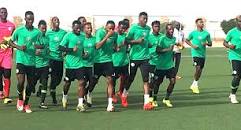
By Yahaya Etila
The commentaries on the just concluded 2024 Olympics are well in place given the quantum of resources expended by the Nigerian contingent. On the medals table, Nigeria sat comfortably at the bottom with no medal, marking it as one of the country’s worst Olympic outings in recent history.
However, as embarrassing as the outing was, there are lessons to learn about planning and strategy and how they are necessary in our quest for sustainable growth and development.
My verdict about the performance of Team Nigeria is that we left things to chance because one year is not enough to prepare and participate effectively in such a global sporting event. That would be wishful thinking.The Olympic Games are held every four years. And that gives ample time for preparations. But the truth remains that you can’t give what you don’t have. It is not about participation alone. It is about a culture that is lacking in the country. We always wait till the last minute before we make attempts at preparations. This has been our culture and one wasn’t surprised with the performance of the Nigerian contingent.
There was no magic to conjure to mitigate the lack of preparation. Other countries prepared for the event for several years and it paid off as amply demonstrated on the medals chart. It is akin to when preparation meets opportunity, success becomes inevitable.
I like the position of the Minister of Sports, John Owan Enoh. He was blunt about the outing of the Nigerian team. One cannot but salute his presence of mind to admit that the country’s performance at the Olympics “fell short of expectations”.
In his words, “When I assumed office as the Minister of Sports Development in August 2023, I was confronted with the task of executing four international competitions namely the AFCON, the African Games, the Olympic and Paralympic Games in a matter of a few months. I was also reminded that the Olympic Games is the world’s supreme sports competition, and countries require at least four years to prepare for it. I held extensive discussions with the management staff of the Ministry and got to know that preparations for the Olympics, which was less than a year away, had not started.”
This is the point one wishes to bring to the fore. The country was not prepared for global events. What happened? This question should be channelled to the former Minister of Sports Development in the previous administration. At the 2020 Olympics in Tokyo, Team Nigeria won only two medals, a silver and a bronze, in wrestling and long jump.
Blessing Oborududu is currently ranked as the world’s number two woman wrestler and the first to win an Olympic medal representing Nigeria at the 2020 Olympics. She is also a 12-time African champion from 2010 to 2023. This time around she crashed out in the semi-finals, despite expectations for her to excel and make us all proud. In a letter she wrote to Nigerians after the Olympics, she stated that she was medically ruled out of the Games, but she fought to represent the country in Paris. What does this tell us? This is an example of when we leave things to chance and expect miracles to happen.
Ese Brume won a bronze medal in the long jump at the last Olympics. She is the current Commonwealth champion and a three-time African senior champion in the Long Jump. She finished in fifth position and confessed that she was hampered by an injury. She too, admitted that she competed with an injury. In her words, “Looking back to where I’m coming from, I didn’t compete much this year because of injuries.
Even up to today, I also competed with an injury, but I’m glad that I made it this far. I’m happy with myself and thankful to God.” This again is leaving things to chance and expecting a miracle to happen. Tobi Amusan also crashed out of the Women’s 100m Hurdles at the semi-finals. Amusan is the current world record holder in the 100-metre hurdles.
She is also the current Commonwealth and African champion in the 100-meter hurdles. At the 2023 World Championships, she finished sixth in the final. This is also indicative that she probably nursed an injury and still participated in the 2024 Olympics. I stand to be corrected.
I used the three examples for a reason. The trio of established athletes are record holders. However, a critical analysis would reveal that the trio sustained their tempo solely through their efforts with little or no support from the sports federations. I will try to explain. Daniel Igali became president of the Nigerian Wrestling Federation in 2020, a position he has occupied to date.
As an experienced wrestler, he should know and do better in preparing our wrestlers for such an important event. The confession by Blessing Oborududu suggests where the blame should go. Tonobok Okowa has been the president of the Athletics Federation of Nigeria, (AFN) since 2021. Who is Tonobok Okowa?
The much I could glean about him is that he is: “First Vice Chairman of Delta State Football Association; Chairman of Delta Force Football Club; Patron of Delta State (Football) Referees Council and Executive Chairman of Delta State Sports Commission. He was eventually consecrated President of the Athletics Federation of Nigeria. And we expect magic to happen?
Let’s take the clock back. The Minister of Sports Development in his statement about the short of expectations performance of Team Nigeria at the Olympics blamed the federations for prioritizing “qualification over preparations for the Olympic Games.
In his words “After the African Games, subsequent meetings were limited to the Federations that had bright chances of qualifying for the Olympics. Medal projections were made by all the Federations, although their athletes were still trying to qualify, which lasted until about June 2024.” We need to read between the lines of the minister’s statement to understand where the problem arises from. This is a systemic problem and those who have heaped blame on Senator Enoh the Minister of Sports Development need to rethink.
He is barely a year in office and I struggle to understand what magic he could have performed which would have translated to a good outing for the Nigerian contingent at the Olympics. I am glad the minister is blowing hot. I hope he matches his words with action.
We need to plan and strategize in all our endeavours. It is not enough to make projections without commensurate action. This has been the trend and explains why the recent outing of Team Nigeria at the concluded Olympics should not come as a surprise to Nigerians.
It is irrational to heap the blame on the minister of Sports Development. It is tantamount to putting the cart before the horse. I stated earlier that I liked the fact that he has taken responsibility for the uninspiring outing of the contingent in Paris. He didn’t mince his words.
This is an unacceptable performance. This much I agree, but with a caveat. The minister must begin the process of rejigging the various sporting federations to avoid the mistakes of the past that culminated in the embarrassing outing of Team Nigeria. The quote, when preparation meets opportunity, success becomes inevitable readily comes to mind. These are indeed lessons for the leadership class in Nigeria.
Etila, a development expert, wrote from Abuja.





